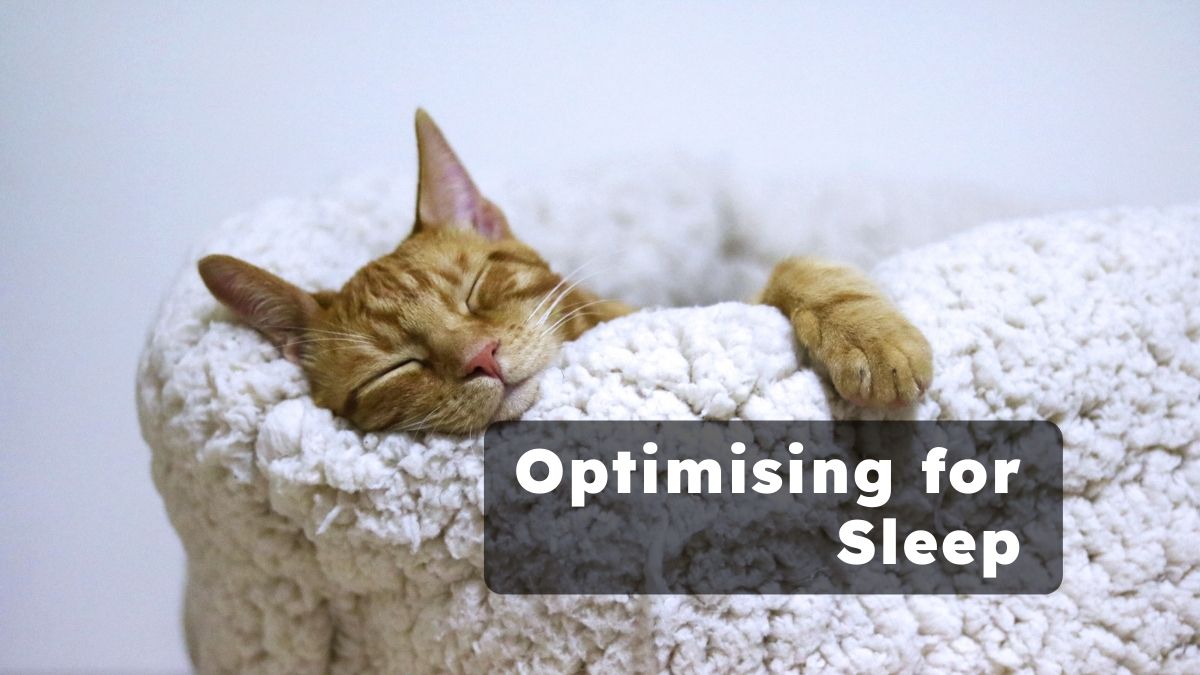Since young, we’ve been inundated with advice about the importance of getting 8 hours of restful sleep. But with so many events, work-related or not, weighing down our minds, how can we optimise for sleep?
With a global obsession trending toward an always-on approach to work, a 24-hour news cycle, and full blown pandemic and now, a Russia-Ukraine war that may or may not escalate into a nuclear situation, how can anyone get any decent sleep these days?
Sleep Search Interest

As we can see from the chart via Google Trends above, sleep as a topic has been on the increase. In relation to this topic, here are the common questions people ask about sleep on Google:

Let’s see if we can address these questions, and walk away with some tips on how to get better sleep.
Natural remedies for better sleep
1. Exposure to natural sunlight during the day
This doesn’t sound intuitive, but getting exposure of around 2 hours of bright sunlight a day helps to improve your sleep quality and duration at night. This is because the exposure keeps your circadian rhythm healthy, which in turn improves day-time energy levels and night-time sleep quality.
So, a walk in the early mornings or evenings not only helps you get those steps in, but can also aid in getting a restful night of sleep.
2. Reduce blue light exposure in the evenings
Blue light exposure from mobile devices and computer screens have long been attributed to disruptions to sleep. This is because the blue light tricks your body into thinking it’s day time.
Best practices are to turn off the TV, any device and bright lights 2 hours before bedtime.
If these options are not possible, perhaps you can try glasses that block out blue light.
3. Caffeine, bad.
Again, something we’ve all heard before, but perhaps a little harder to put into practice. Caffeine stays elevated in your blood for 6 – 8 hours. So, if you want that beauty sleep, no caffeine after 2pm.
4. Schedule, schedule, schedule
As parents, we’re pretty strict with trying to keep to a schedule for our young children, including keeping to a strict bedtime routine.
Well, it turns out that may be a good thing to keep for adults as well.
Irregular sleep patterns can disrupt your circadian rhythm, and mess with your melatonin levels, resulting in sleep disruption.
So try to keep to a regular sleep/wake cycle. Yes, even on the weekends.
5. Keep cool, literally
If you’re feeling too warm, it’s unlikely you can fall asleep comfortably and easily. Having a nice warm bath before bed can help cool your body temperature and get you nice and comfortable for bed.
Also looking into regulating the temperature in your bedroom.
6. Establish a relaxing, pre-sleep routine
Deep meditation, soothing music, reading a book and taking a warm bath (as above) are also some other strategies you can take, to put you in the mood for sleep.
You can test these out and see what suits you, and try to work them into your bedtime routine for long-term sleep quality.
7. Invest in quality bed, mattress and pillows
Besides your work, sleep is the next biggest item in your day, every day. It is important to ensure that you invest in good quality bed, mattress and pillows to physically put you in a good spot to optimise your sleep.
After all, if you retire to bed on a creaky, nail infested plank every night, then it doesn’t matter how much work you put on the prior 6 points above.
How to fall asleep fast
Some of us don’t have trouble with sleeping once we fall asleep, but we do take our time getting there.
Are there any tricks and strategies to falling asleep quickly?
1. Use the 4-7-8 breathing technique
This breathing exercise helps to ease anxiety and put you in a state of calm. Here’s how it works.
- While laying down in bed, allow your tongue to relax behind your front teeth, resting on the roof of your mouth.
- Slowly exhale all of your breath through your mouth, completely emptying your lungs.
- Breath in through your nose for 4 seconds, hold your breath for 7 seconds, then exhale for 8 seconds.
- Repeat this process at least four times.
This is useful not just for sleeping, but can be practiced any time you feel stressed or anxious.
2. Aromatherapy
Different scents can put you in different moods, and some moods for sleeping include the scents of lavender, sandalwood and peppermint.
3. Forcing yourself to stay awake
Wait, what?
This is very counter intuitive, but remember all the nights you were awake, trying to force yourself to sleep? Exactly.
As counterintuitive as it may sound, forcing yourself to stay awake may be helpful in getting you to sleep!
Yes, lie in bed, do not move, no devices. Now try to stay awake.
Good night.
I hope these techniques can help you get into a better and more restful sleep routine. I will also definitely be working some of these into my daily routine and report back.
Sleep tight my friends.
This is part of my ongoing “Get Better” series in the form of a newsletter via substack. If you liked this, and want to get sent more content like this, please subscribe below.
